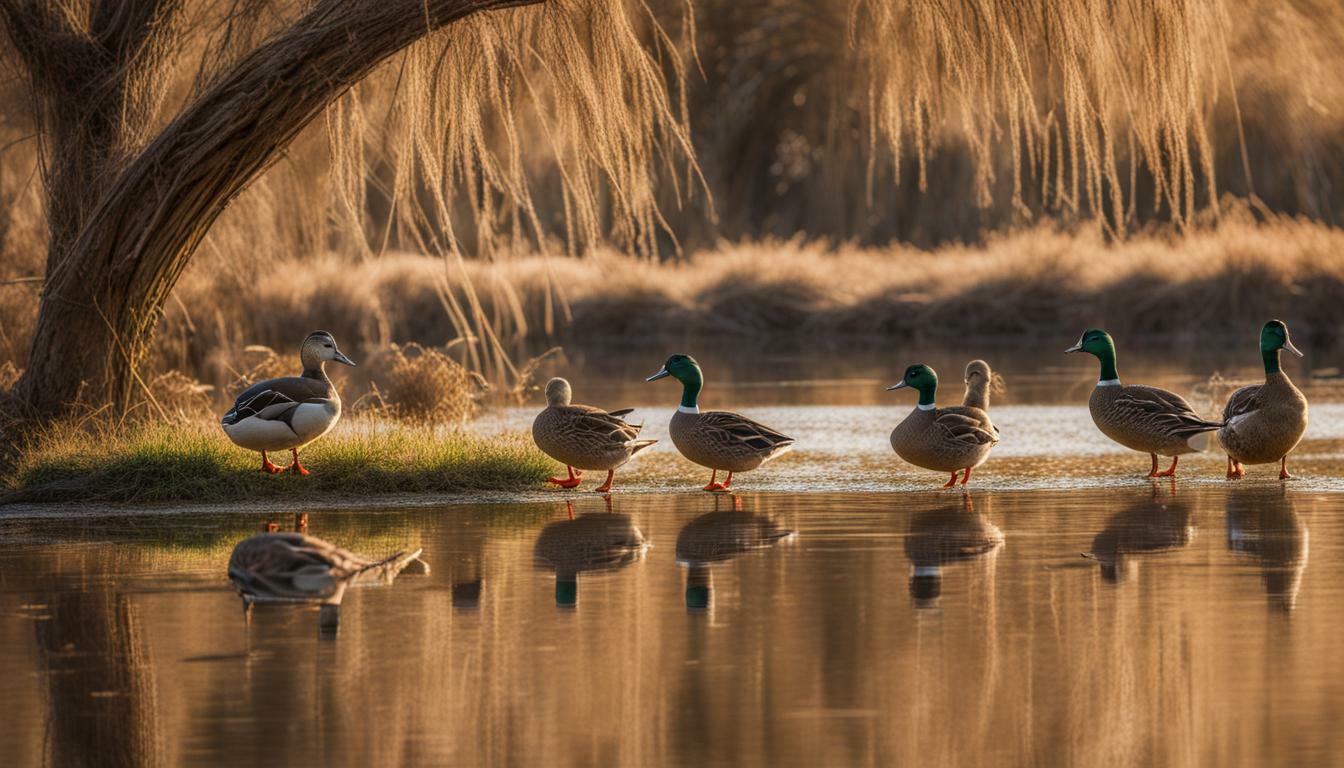Do Ducks Eat Eggs?

Table of content:
Ducks eat a varied diet fitting of their natural habitat and instincts. As waterfowl that inhabit ponds, rivers, and wetlands, ducks fill their bellies with aquatic plants, fish, frogs, crustaceans, insects, and more. With their wide range of food sources, you may wonder – do ducks also eat eggs as part of their diverse diet? The answer isn’t straightforward, with some key differences between wild ducks and domestic ducks. Let’s take a closer look at the intriguing question of whether these water-loving birds consume eggs.
What Are Ducks?
Before diving into egg eating, it helps to review what exactly ducks are. Ducks belong to the bird family Anatidae, which includes swans, geese, and other waterfowl. There are around 140 species of ducks in numerous genera, with the most recognizable being the mallard. Some key features of ducks are:
- Aquatic birds living around water bodies like ponds, rivers, lakes, wetlands
- Short legs with webbed feet for swimming and floating
- Flat bills that act as sieves when feeding underwater
- Waterproof feathers to stay insulated and dry
- Omnivorous, eating plants, insects, fish, amphibians
Ducks can be found worldwide on every continent except Antarctica. They are social birds that travel together in flocks called “rafts.” The most common ducks seen in North America include the mallard, wood duck, blue-winged teal, and Canada goose.
Do Wild Ducks Eat Eggs?
In the wild, ducks are opportunistic eaters and will consume protein sources like fish, amphibians, crustaceans, insects, worms, and mollusks. Their diverse palate also includes aquatic plants, grasses, seeds, and grains. With such a varied diet, wild ducks do occasionally eat eggs if given the chance. Some types of eggs ducks might eat in the wild include:
Frog Eggs
Frogs and other amphibians lay gelatinous blobs of eggs in ponds, which are easy pickings for hungry ducks. The eggs provide protein, nutrients, and calories. Ducks will readily gorge on frog eggs when available.
Fish Eggs
The eggs of fish like perch and sunfish are more occasional treats for wild ducks. Laid on surfaces like logs or rocks, fish eggs offer tempting sources of protein when found.
Bird Eggs
Bird nests near water provide another egg-eating opportunity. Ducks may eat the eggs of other ground-nesting birds like grebes, coots, plovers, and terns if they stumble upon unprotected nests.
Overall, wild ducks don’t go out of their way to find bird eggs. But they will take advantage of any unattended nests they find while foraging around ponds and wetlands. The eggs provide extra nutrition to supplement their diverse diet.
Do Domestic Ducks Eat Eggs?
Domestic ducks raised on farms exhibit some key differences from wild ducks when it comes to egg eating. Farmers raising ducks for egg production want the ducks to lay as many eggs as possible rather than eating their own eggs. For this reason, farmers try to prevent domestic ducks from developing egg eating habits. However, the natural instincts of ducks sometimes override training, leading to some egg eating.
Do Domestic Ducks Eat Their Own Unfertilized Eggs?
Farmers try to collect duck eggs quickly before the ducks can have a chance to eat them. However, domestic ducks may still eat their own unfertilized eggs occasionally. Once a duck eats its egg once, it establishes a habit that becomes harder to break. Farmers use fake plastic eggs in nests to discourage this behavior.
Do Domestic Ducks Eat Boiled Eggs?
Ducks lack the ability to “cook” an egg. A domestic duck may eat a boiled egg if offered by a human caretaker. However, the duck can’t differentiate between a boiled egg and raw egg on its own.
Types of Ducks and Egg Eating
Not all domestic duck breeds have the same propensity for egg eating. Certain types are more prone to developing egg eating habits.
Muscovy Ducks
Muscovy ducks have a greater tendency for egg eating than other common domestic duck breeds like pekins or mallards. Their strong taste for eggs must be curbed by farmers for egg production.
Mallard Ducks
Mallard ducks are not as likely to eat their own eggs compared to muscovy ducks. But wild mallards still opportunistically eat other birds’ eggs when discovered.
Egg Laying and Egg Eating
Another key time when ducks may eat more eggs than usual is when they are laying their own eggs. The process of producing and laying eggs requires extra protein and calcium. Baby bird shells are over 90% calcium carbonate. To replenish nutrients lost to egg laying, a female duck may eat more prey like protein-rich eggs during this time.
Do ducks also eat the shells of eggs once they hatch? Ducks may eat small bits of fractured shell after their duckling hatches. But they typically don’t consume the whole crushed shell, which has limited nutritional value. The mother duck’s main focus after hatching is keeping her ducklings warm and safe.
Final Thoughts
In summary, egg eating depends greatly on whether a duck is wild or domesticated. Wild ducks eat eggs opportunistically as a supplement to their diverse diet. Domestic ducks are prevented from egg eating so farmers can collect the eggs for human consumption. However, domestic ducks’ natural instincts sometimes lead them to eat their own unfertilized eggs, especially muscovy breeds.
Egg eating also increases in breeding female ducks needing extra protein and calcium to lay. But ducks don’t purposefully eat whole crushed shells after eggs hatch since the shells offer minimal nutrients.
So while ducks aren’t daily egg-feasting animals, they occasionally consume eggs in the wild and on farms when instincts and access align. Next time you see a duck, it may have had an egg-citing protein meal recently!
Welcome. I’m Adreena Shanum, the proud owner of this website, and I am incredibly passionate about animals, especially poultry. I founded adreenapets.com as a labor of love, stemming from my desire to share my knowledge and experiences with poultry enthusiasts worldwide.




